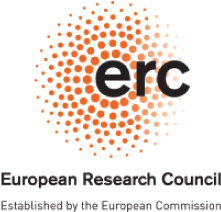Building diagnostic systems in Sierra Leone: The role of point-of-care devices in laboratory strengthening
Ansumana,R.,Bah,F., Biao,K., Harding,D., Jalloh, M.B., ,Kelly,A.H., Koker,F., Koroma, Z., , Momoh,, M., Rogers, M.H., Rogers, J., Street, A (corresponding author), Vernooij,E., Wurie, I., 2020
African Journal of Laboratory Medicine
On 04 March 2019, a multidisciplinary group of policymakers, biomedical and social scientists and local experts in the field of laboratory medicine convened to discuss the role of point-of-care diagnostic devices in outbreaks and their integration with healthcare infrastructure in Sierra Leone. The meeting was organised by the DiaDev research project, funded by the European Research Council under the Horizon 2020 Framework, which investigates the development of point-of-care diagnostic devices in global health and their role in transforming health systems in resource-constrained settings (www.diadev.eu). The meeting featured short presentations as well as a panel discussion with Sierra Leonean laboratory scientists and health workers, who shared their first-hand experience using rapid diagnostic tests during the Ebola outbreak. Three key insights from the day are highlighted here as disruptive and constructive contributions to debates about diagnostic futures in Africa.
https://www.ncbi.nlm.nih.gov/pmc/articles/PMC7203302/
Understanding the Role of the Diagnostic ‘Reflex’ in the Elimination of Human African Trypanosomiasis
Palmer, J.J., Jones, C., Surur, E., Kelly, A., 2020
Tropical Medicine and Infectious Disease
To successfully eliminate human African trypanosomiasis (HAT), healthcare workers (HCWs) must maintain their diagnostic acuity to identify cases as the disease becomes rarer. HAT experts refer to this concept as a ‘reflex’ which incorporates the idea that diagnostic expertise, particularly skills involved in recognising which patients should be tested, comes from embodied knowledge, accrued through practice. We investigated diagnostic pathways in the detection of 32 symptomatic HAT patients in South Sudan and found that this ‘reflex’ was not confined to HCWs. Indeed, lay people suggested patients test for HAT in more than half of cases using similar practices to HCWs, highlighting the importance of the expertise present in disease-affected communities. Three typologies of diagnostic practice characterised patients’ detection: ‘syndromic suspicion’, which closely resembled the idea of an expert diagnostic reflex, as well as ‘pragmatic testing’ and ‘serendipitous detection’, which depended on diagnostic expertise embedded in hospital and lay social structures when HAT-specific suspicion was ambivalent or even absent. As we approach elimination, health systems should embrace both expert and non-expert forms of diagnostic practice that can lead to detection. Supporting multidimensional access to HAT tests will be vital for HCWs and lay people to practice diagnosis and develop their expertise.
Full citation: Palmer JJ, Jones C, Surur EI, Kelly AH. Understanding the Role of the Diagnostic ‘Reflex’ in the Elimination of Human African Trypanosomiasis. Tropical Medicine and Infectious Disease. 2020; 5(2):52. https://doi.org/10.3390/tropic...
Read article
Deep Diagnostics
Street, A., 2018
Alice Street examines the market infrastructure behind point-of-care diagnostics
Full citation: Street, A. 2018. Deep Diagnostics. Limn, Issue 9 Little Development Devices/Humanitarian Goods
Read Article
Ebola vaccines, evidentiary charisma and the rise of global health emergency research
Ann Kelly, 2018
Economy and Society
The 2013–2016 West African Ebola outbreak was both a catastrophic public health disaster and a rare research opportunity. This paper analyses how the tensions between the humanitarian imperatives of disease control and the epistemic conventions of bioscientific inquiry played out in the accelerated development, testing and licensure of Ebola vaccines. Beginning with the epidemiological projections of the disease’s spread, the paper develops the notion of evidentiary charisma to capture the power of experimental designs and data packages to marshal public health salience, recruit moral legitimacy and short-circuit scientific contestation. Attention to the charismatic dimensions of Ebola vaccine R&D helps to unpick the simultaneous appeals to exception and convention in the unfolding of a global health crisis, and to trace the normative and technical contours of the emerging paradigm of emergency research.
Full citation: Ann H. Kelly (2018) Ebola vaccines, evidentiary charisma and the rise of global health emergency research,Economy and Society, 47:1, 135-161, DOI: 10.1080/03085147.2018.1448557
Read Article
Biomedicine in an unstable place: infrastructure and personhood in a Papua New Guinea Hospital
Alice Street, 2014
Duke University Press
Biomedicine in an Unstable Place is the story of people's struggle to make biomedicine work in a public hospital in Papua New Guinea. It is a story encompassing the history of hospital infrastructures as sites of colonial and postcolonial governance, the simultaneous production of Papua New Guinea as a site of global medical research and public health, and people's encounters with urban institutions and biomedical technologies. In Papua New Guinea, a century of state building has weakened already inadequate colonial infrastructures, and people experience the hospital as a space of institutional, medical, and ontological instability.
In the hospital's clinics, biomedical practitioners struggle amid severe resource shortages to make the diseased body visible and knowable to the clinical gaze. That struggle is entangled with attempts by doctors, nurses, and patients to make themselves visible to external others—to kin, clinical experts, global scientists, politicians, and international development workers—as socially recognizable and valuable persons. Here hospital infrastructures emerge as relational technologies that are fundamentally fragile but also offer crucial opportunities for making people visible and knowable in new, unpredictable, and powerful ways.
Full citation: Street, A. (2014). Biomedicine in an unstable place: Infrastructure and personhood in a Papua New Guinean hospital. Duke University Press.
Link to book
Artefacts of not-knowing: The medical record, the diagnosis and the production of uncertainty in Papua New Guinean biomedicine
Alice Street, 2011
Social studies of science
Anthropological and STS scholars of biomedical work have traditionally explored contexts where inconsistencies and lacunas in diagnostic knowledge-production are problematic for medical practitioners, and such scholars have consequently focused on the social and political processes by which such epistemic uncertainties are resolved. This article draws on ethnographic material from a Papua New Guinean hospital where diagnostic uncertainty is not rendered problematic and where the open-endedness of the diagnostic process gives rise to new forms of medical expertise and practice. The paper focuses on the medical record as an artefact of not-knowing that both documents and performs uncertainty as a valuable resource. It shows that medical records can operate as either technologies of ‘opening’ that multiply opportunities for pragmatic action within a hospital space or as technologies of ‘closure’ that move people and documents between spaces. Practices of not-knowing and knowing are therefore shown to be interdependent and interchangeable ‘moments’ of bureaucratic-biomedical work.
Full citation: Street, A., 2011. Artefacts of not-knowing: The medical record, the diagnosis and the production of uncertainty in Papua New Guinean biomedicine. Social studies of science, 41(6), pp.815-834.
Read Article






